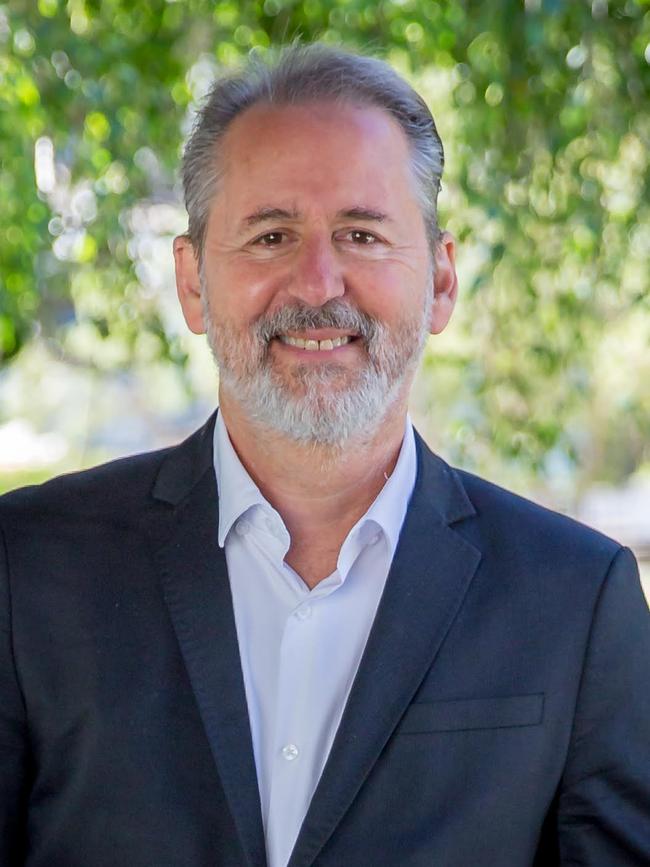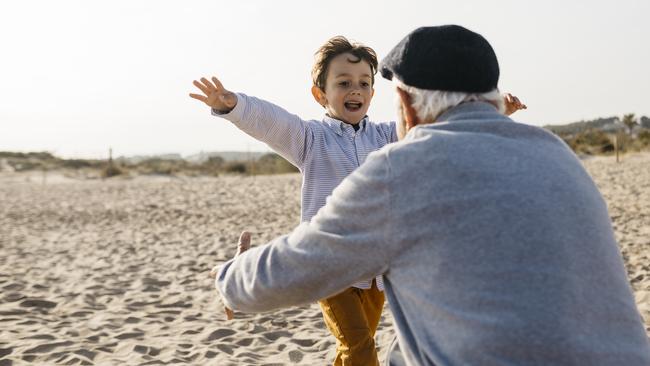Family estrangement: the trauma and how to manage it
With adman John Singleton’s extended family dramas spilling into legal action this week, we take a broader look at the impact of family estrangement and how to stay emotionally safe.

The parent-child bond is probably the key relationship across your life, and when it is compromised or, worse, when it leads to family estrangement, the emotional damage can be immense.
Fraught family dynamics are difficult to resolve and can have consequences for generations, relationship experts say.
So many families will have their own experience with conflict, from temporary disagreements to acrimonious stand-offs to full-blown isolation and estrangement.
Former adman John Singleton was criticised this week by daughter Daisy, 19, over an interview he gave on television about the death of another daughter, Dawn, one of six people stabbed to death at Bondi Junction on April 13, 2024.
Daisy posted on Instagram that her father had “simply not seen her (Dawn) since she was 8”, although Mr Singleton had said he had been helping Dawn to buy a wedding dress. The deep family schism became public over their different views on whether a forthcoming inquest should go ahead.
Daisy is one of eight children Mr Singleton fathered during seven marriages.
Every situation is different, but common themes emerge – parents separated from their children after divorce, and the lack of contact continuing into the child’s adulthood; physical or emotional abuse or neglect; perceived, or actual, favouritism; new partners becoming involved; differences in belief systems or values.
Mental health issues can be another catalyst, whether they affect the parents or adult child, as they tend to elevate tension and conflict in family situations.
Regardless of the cause, everyone is hurt in different ways – loss, grief, anger and resentment. The flow-on, especially for the children, can be a lack of trust in their own adult relationships.
And it is more prevalent than you think. Social work academic Kylie Agllias, author of Family Estrangement: A matter of perspective, says around one in 25 Australian adults has been estranged from family at some point in their life.
Dysfunctional relationship
Melbourne-based clinical psychologist Sarah Valentine says it’s no wonder family estrangement can lead to lifelong trauma.
“The parent-child relationship is pivotal,” Dr Valentine says. “They are your key attachment figures, and having at least one parent is critical to meeting your needs as you grow up – care, love, attention but also boundary-setting.”


“Having a dysfunctional relationship with an attachment figure is really damaging. That dysfunction may be either what happened, for instance that they were threatening or critical, or it may be what didn’t happen, for instance that the child was ignored rather than being validated or loved.
“I’ve spent a lot of time talking to clients who say ‘I’m 40 years old. Why am I still so bothered by this?’. But of course it’s how you set your emotional self up for life,” Dr Valentine says.
Shame, guilt and loss
US clinical psychologist Joshua Coleman, author of Rules of Estrangement, says the experience of family estrangement is typically a “cataclysmic” event for families.
“Parents of adult children are often denied access to their grandkids. Siblings have to make a decision about who to side with,” says Dr Coleman, senior fellow at the Council on Contemporary Families.

“For the parent there is really no upside. They are left with shame, guilt and loss. For the adult child estrangement may offer the liberation from abusive family members or expressions of their authority and identity.”
Australian Psychological Society chief executive Zena Burgess agrees the impact of family estrangement can be “far-reaching”.
“(It can) have a significant effect on all family members, not just those at the centre of the conflict. People may experience feelings of grief, loss, anger or resentment,” Dr Burgess says.
Another US-based practitioner, psychotherapist Sharon Martin, says estrangement is “incredibly painful for everyone involved, even those who initiate the distance”.
“The emotional stress is compounded by the social stigma of estrangement,” says Dr Martin, author of Cutting Ties with Your Parents.
“Most of my clients also experience intense pressure to reconcile, which adds to their distress and feeling misunderstood and judged harshly,” she says.
It’s impossible to simplify family breakdowns into categories, the situations being so vastly different, and personal, for every relationship, Dr Coleman says.
“Sometimes it’s a son-in-law or daughter-in-law demanding their partner choose them over their family,” he says.
“Or a divorced father is more likely to have limited custody, so they are not seeing the child as much and not having the opportunity to bond, and if the mother, who has more influence over the child, is inclined to alienate the father, she is in a position to do so.
“Or the father might focus on his stepchildren from his new marriage more, and this increases the risk of estrangement of other children at any age.”
Relationship neglect
Family estrangement can occur through neglect of the relationship, or it can be a conscious choice by a family member when there is no other emotionally safe path left.
Dr Burgess says making the decision to cut contact with family is “often a complex and deeply personal process that may have significant emotional and social implications”.

“It is often driven by a combination of factors related to self-preservation, mental health and unresolved emotional conflicts,” Dr Burgess says.
Dr Martin says that in her psychotherapy practice “adult children most often attribute estrangement to abuse, betrayal, indifference or lack of acceptance from their parents”.
“Typically, the mistreatment began in childhood and is longstanding and ongoing. It’s not a one-off argument or altercation,” she says.
But Dr Coleman says he worries that children who aren’t thriving in adulthood, sometimes with the aid of their therapists, can be too quick to blame the condition on the parent-child relationship.
“There are many pathways to adult depression or unhappiness other than bad parenting,” he says. “Look at Gen Z, they have high rates of depression and it’s not all because of bad parenting. It’s more in response to a ‘phone-based childhood’ where they’re constantly being steeped in the negative aspects of social comparison.
“There’s also genetics, social class and a host of other factors that influence adult outcomes in addition to parenting.
“But people are looking at Instagram, TikTok and influencers talking about cutting off ‘borderline or sociopathic parents’. They have no qualification but are unfortunately extremely influential, too influential.”
Reach out, don’t criticise
So is there a way out? Is reconciliation an option? Or is emotional safety the best you can hope for?
“Adults will often give rebuilding their relationship with their parents a shot, because it really is that important a relationship,” Dr Valentine says.
“This could be by trying to foster a new adult-to-adult relationship, or to put on the table how their relationship has impacted them and what they want from here.”
Dr Coleman says parents looking to repair a broken relationship with their adult child need to give a lot of ground.
“Reach out, try and take responsibility. Listen to what the child says and try to find the kernel of truth in their perspective. Don’t shame or criticise them.”
His advice is similar for adult children. “Give the parent time to address your concerns. Create a climate where compromise is possible and, importantly, don’t assume that everything will change straight away.”
“Allow yourself time to come to terms with feelings of loss and grief. It is also important to respect other people’s boundaries, whether we agree with them or not.”
Dr Coleman says he would counsel people in this situation not to regard any decision as a “forever” one.
“I say to people to be prepared to revisit where the relationship is every year. One day things may have changed.”
But Dr Valentine says sometimes it is necessary to step away, potentially forever, to protect yourself from emotional harm.
“In those cases it really moves to people asking themselves ‘how can I put some limits on how this is affecting me?’. This can ultimately mean moving to more superficial contact where they don’t let their family member in emotionally, or stopping contact altogether,” she says.
Dr Burgess offers some tips when navigating family estrangement, including prioritising self-care such as sleep, diet and doing things you enjoy.
“Allow yourself time to come to terms with feelings of loss and grief,” she says. “It is also important to respect other people’s boundaries, whether we agree with them or not.
“Getting professional help from a psychologist may offer you some useful tools for self-reflection as well as ways to cope with how you are feeling. And, if it feels right, talking to a loved one or friend about how you’re feeling may be supportive too.”





To join the conversation, please log in. Don't have an account? Register
Join the conversation, you are commenting as Logout